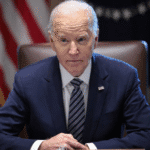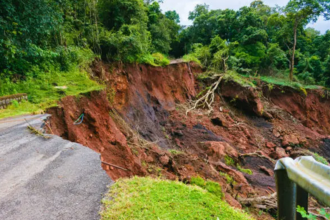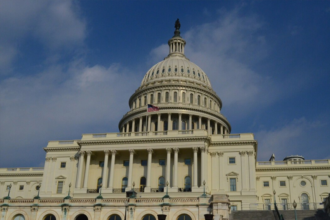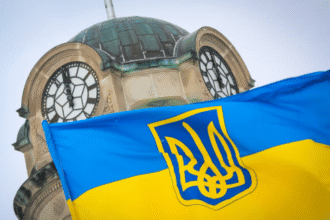The third in just as many years, Portugal’s most recent emergency parliamentary elections have yielded significant election outcomes, highlighting a changing political terrain. Once more, the right-of-center Democratic Alliance emerged victorious in the elections; however, most importantly, it did not reach an absolute legislative majority. This result exposes the growing prominence of the far-right Chega party and offers a complicated picture for creating a stable government.
- What About the Position of the Winning Party? Do the Portugal Election Results Expose?
- How did the Socialist Party perform in the Portugal Election Results?
- Based on the outcomes of the Portuguese election, what part has the far-right Chega Party played?
- Why Did Political Controversies Affect Portugal's Election Results?
- What consequences, for policy and governance, do the Portugal election results imply?
- In essence, what does the Portugal Election result mean for the future?
Examining the main personalities, election dynamics, and larger political background helps one to better appreciate the consequences of the Portugal election outcomes. This study seeks to offer a fair and instructive summary of the implications of the findings for Portugal’s political future direction and governance.
What About the Position of the Winning Party? Do the Portugal Election Results Expose?
Right-of-center alliance, the Democratic Alliance came out on top once more in these quick elections. Luís Montenegro, their leader, spoke clearly to his fans, emphasizing social development and economic improvement. “We will guarantee prosperity and social justice and stimulate investment,” Montenegro stated. These pledges seek to reassure people amid the uncertainty of a hung parliament.
Nevertheless, the Democratic Alliance once more failed to get a parliamentary majority even though it obtained the most seats. This scenario is not new; it reflects the fractured character of Portugal’s present political scene in which no one party can readily command absolute authority.
Montenegro also paused to thank his family and his “political family,” those who supported him through a period of personal strife. The debate centers on commercial transactions connected to a company he started before rising to be party leader, now run by his sons. This problem was a major cause of the previous government to fall apart, which finally resulted in a vote of no confidence, setting off the election.
Under these conditions, Montenegro’s leadership will be put to the test navigating the difficulties of coalition-building and policy execution in a split parliament.
How did the Socialist Party perform in the Portugal Election Results?
Leading the Socialist Party, Pedro Nuno Santos had a challenging election night. The Socialists finished second in the whole count and lost several seats, even though they were the ruling party before the snap ballot. These losses had such an impact that Santos announced his resignation right away.
The fact that the Socialists ended almost exactly neck-and-neck with the far-right Chega party—a relatively young and fast-expanding political force in Portugal—makes the election results more remarkable. Although the last official count from mainland voters showed the Socialists somewhat ahead, this advantage is still vulnerable.
Longer-counted votes from Portuguese nationals living overseas might shift the scale even more. Should the overseas vote trend reflect last year’s election, in which Chega won two of the four available seats overseas and the Socialists obtained only one, the Socialists could lag behind Chega overall. This result represents a historic change in Portuguese politics and would be unheard of. Read another article on Romanian Election Ban
Based on the outcomes of the Portuguese election, what part has the far-right Chega Party played?
André Ventura, the leader of Chega, called the result of the election “historic.” He maintained that the outcomes of the Portugal election signaled the end of a long period dominated by two primary parties: the Democratic Alliance and the Socialists. Ventura claims that the emergence of Chega marks a new political reality whereby different voices question the accepted wisdom.
Ventura’s campaign concentrated mostly on two basic problems: corruption and immigration. Many people who felt unhappy with mainstream politics found resonance in these subjects, especially in light of recent events involving incumbent prime ministers. Such controversies have undermined public confidence and most certainly helped Chega flourish.
Chega’s expansion is in line with a larger European trend whereby far-right parties are winning ground by appealing to voters worried about national identity, immigration policies, and supposed government corruption.
Why Did Political Controversies Affect Portugal's Election Results?
One cannot completely appreciate the results of the Portugal election without understanding the influence of political conflicts. A vote of no confidence against the current government set off the election itself, mostly in response to scandals and questions about openness.
The campaign brought close examination of Luís Montenegro’s commercial past. The business he started before assuming leadership was connected to actions that opponents used to call his integrity questionable. Montenegro appreciated those who stood up for him, but public opinion surely was impacted by the debate.
Pedro Nuno Santos, in his farewell remarks, questioned Montenegro’s fit for prime minister. He underlined that the Socialist Party has to pay attention to the problems brought up during the campaign, since political tensions and accusations are probably going to linger.
Such debates draw attention to Portugal’s difficulties i preserving political stability and building voters’ confidence in politicians.
What consequences, for policy and governance, do the Portugal election results imply?
The outcome of the Portugal election suggests a difficult road forward without a party commanding a majority. To create a functioning administration, Montenegro’s Democratic Alliance will have to deal with smaller parties, including possible allies and rivals.
Important will be coalition negotiations. Chega’s existence as a major parliamentary force complicates these debates, particularly considering the party’s far-right policies and the mainstream parties’ resistance to match them. This political split may result in erratic government or forced unusual coalitions.
Furthermore, influencing Portugal’s response to important concerns, such as economic recovery, investment, immigration policy, and social justice projects, could be the result of the election. The pledges of the Democratic Alliance to boost the economy and drive investment will need political cooperation to realize.
Political players and onlookers should keep a close eye on events. Portugal’s internal policies and international reputation will change depending on the government’s capacity to run efficiently in this divided parliament.
In essence, what does the Portugal Election result mean for the future?
The outcomes of the Portugal election show a political system undergoing change in which new voices acquire importance and old party supremacy is questioned. Although notable, the Democratic Alliance’s triumph does not guarantee a clear mandate; therefore, coalition-building initiatives among a growing far-right presence become even more important.
Both Montenegro and the Socialist Party must answer efficiently to both internal and external demands. While the Socialists gather following a noteworthy loss, Montenegro has to deal with the controversies about its past. Chega’s growing impact points to a change in voter attitude that entrenched parties cannot overlook.
Portuguese political players must give communication, openness, and strategic cooperation top priority going forward. This strategy will be crucial to negotiate the complicated parliamentary dynamics exposed by the Portugal election results and advance stability and development in the nation.








